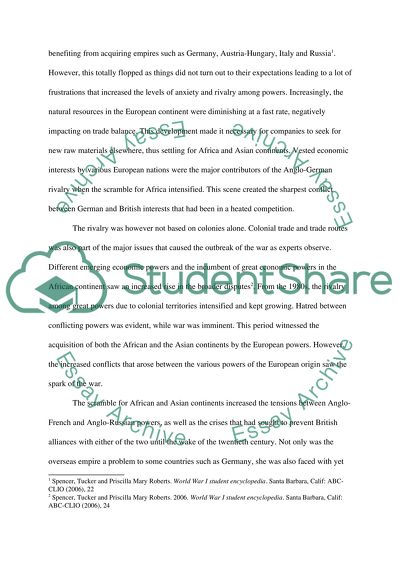Cite this document
(“The Main Causes of World War I. (Militarism, Alliances Imperialism and Research Paper”, n.d.)
Retrieved from https://studentshare.org/history/1477406-the-main-causes-of-world-war-i-militarism
Retrieved from https://studentshare.org/history/1477406-the-main-causes-of-world-war-i-militarism
(The Main Causes of World War I. (Militarism, Alliances Imperialism and Research Paper)
https://studentshare.org/history/1477406-the-main-causes-of-world-war-i-militarism.
https://studentshare.org/history/1477406-the-main-causes-of-world-war-i-militarism.
“The Main Causes of World War I. (Militarism, Alliances Imperialism and Research Paper”, n.d. https://studentshare.org/history/1477406-the-main-causes-of-world-war-i-militarism.


